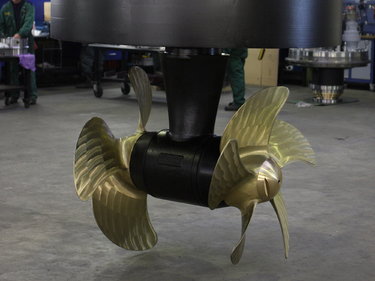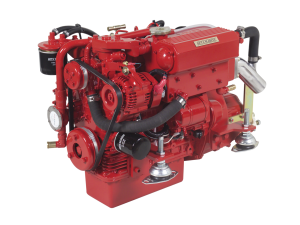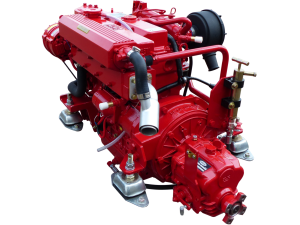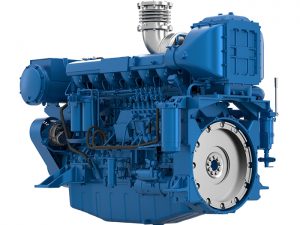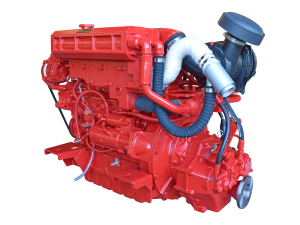Description
Does your vessel have a shallow draft and you find low noise levels important? Then counter-rotating propellers may be of interest to you. Because the power is divided between two (smaller) propellers which rotate in opposite directions, a higher efficiency can be obtained with respect to a single propeller.
In contrast to other suppliers, Veth Propulsion offers a CR solution in which the propeller is mounted on two sides of the tail unit. This has a number of advantages:
- The peripheral speed of the shaft seals is half that of systems with two propellers on one side, in that a shaft does not rotate inside another shaft.
- Two separate (solid) shafts are each loaded between 45-55% of the output power
- A durable bearing and seal is thus created, compared with two propellers on one side
- By making use of a four-blade and a five-blade propeller, the power is distributed over nine blades
- Less time in dock during dismantling. Seals remain in position when the propeller is removed and oil change is not necessary
- At an equal propeller diameter, an efficiency gain of 15 to 20% is achieved compared to a single propeller
Veth Propulsion operates on a proven concept where a labyrinth is incorporated in the propeller hub. A great advantage is that the seal is well protected from fishing line or ropes.
In short, a counter-rotating Z-drive of Veth Propulsion makes the combination of high efficiency, small propeller diameters and low noise possible.
Operation
The CR unit consists of two propellers rotating in opposite directions relative to each other, wherein the second propeller removes the whirling of the water caused by the first propeller. This results in minimal rotational losses with optimal efficiency from the available power and propeller diameters.
Low noise
The counter-rotating propellers give a new dimension to efficient and low-noise propulsion. Because the optimum engine speed is more than 20% lower in counter-rotating propellers than in a single-propeller or in which two propellers rotate in the same direction, there is also an extremely low noise level. Also, the low blade load and the reduced turbulence in the water contribute to lower vibration and noise production.
